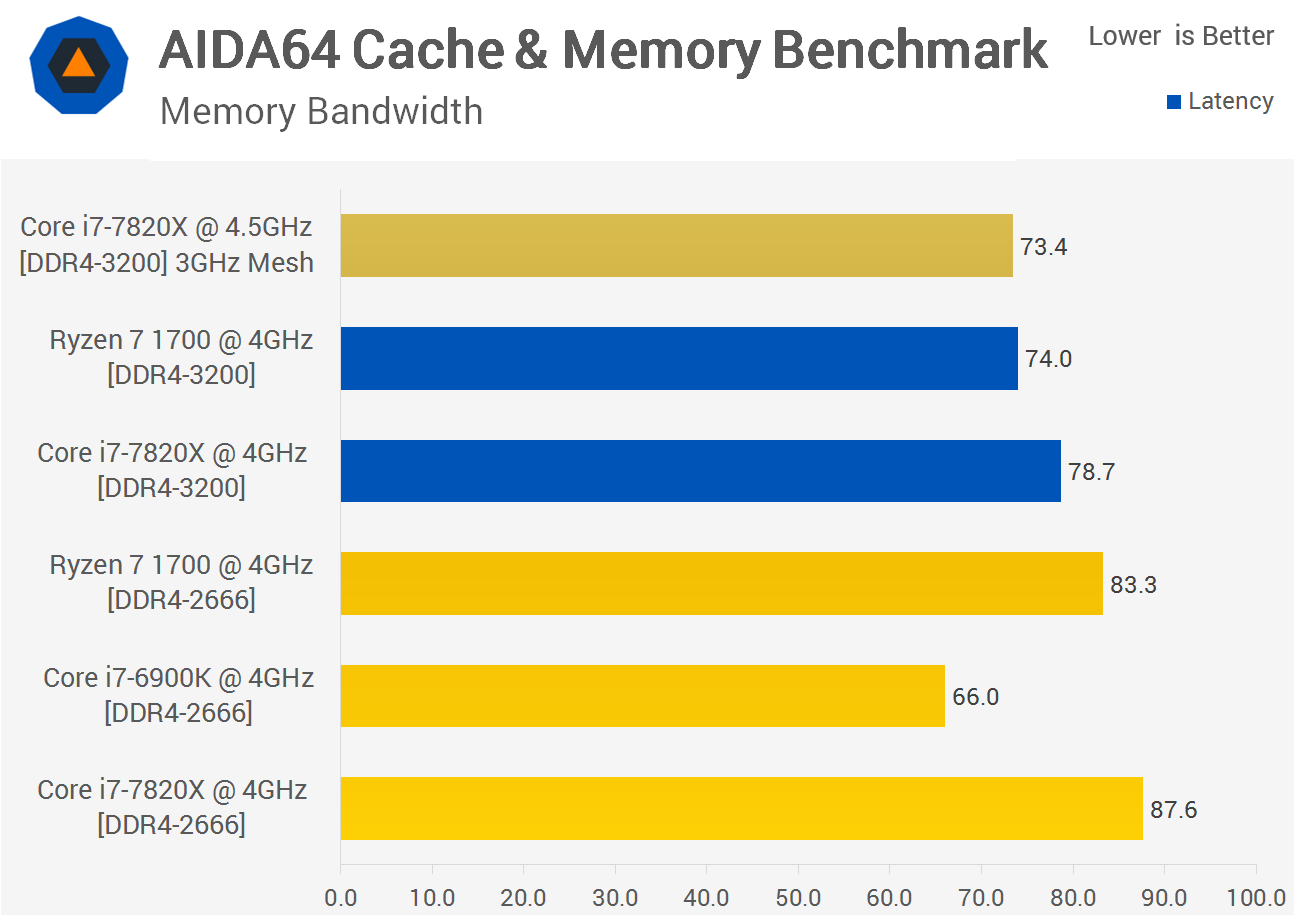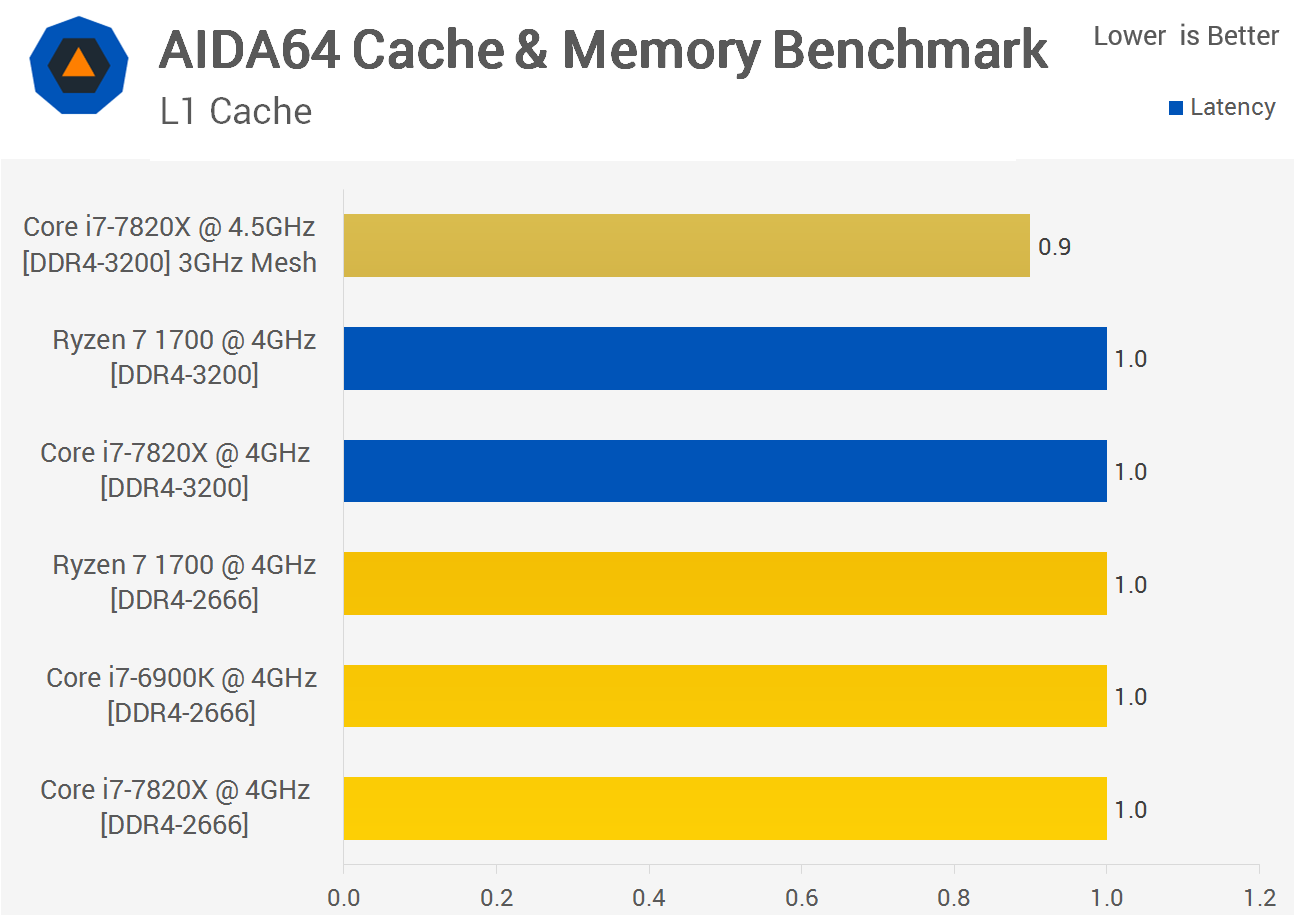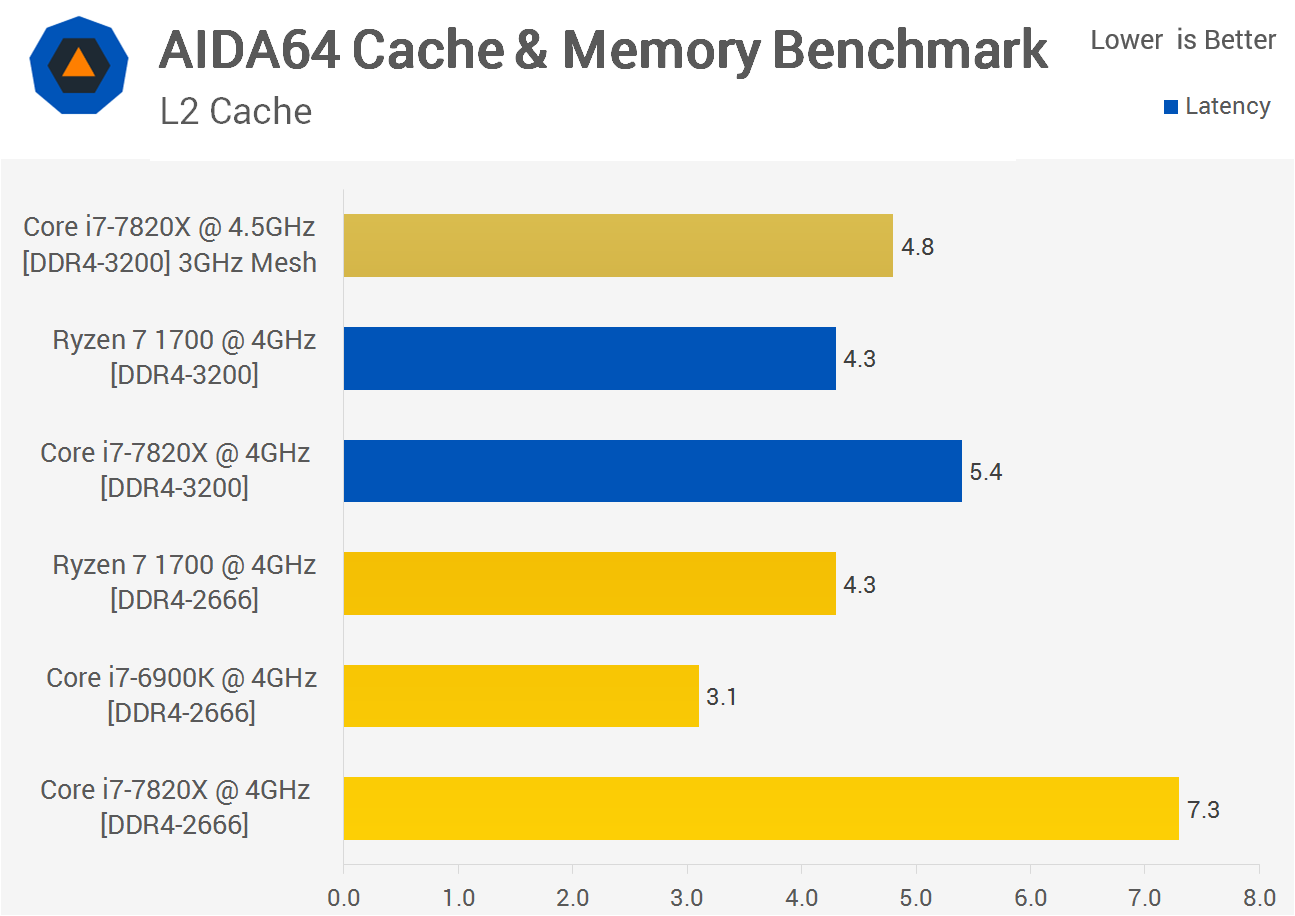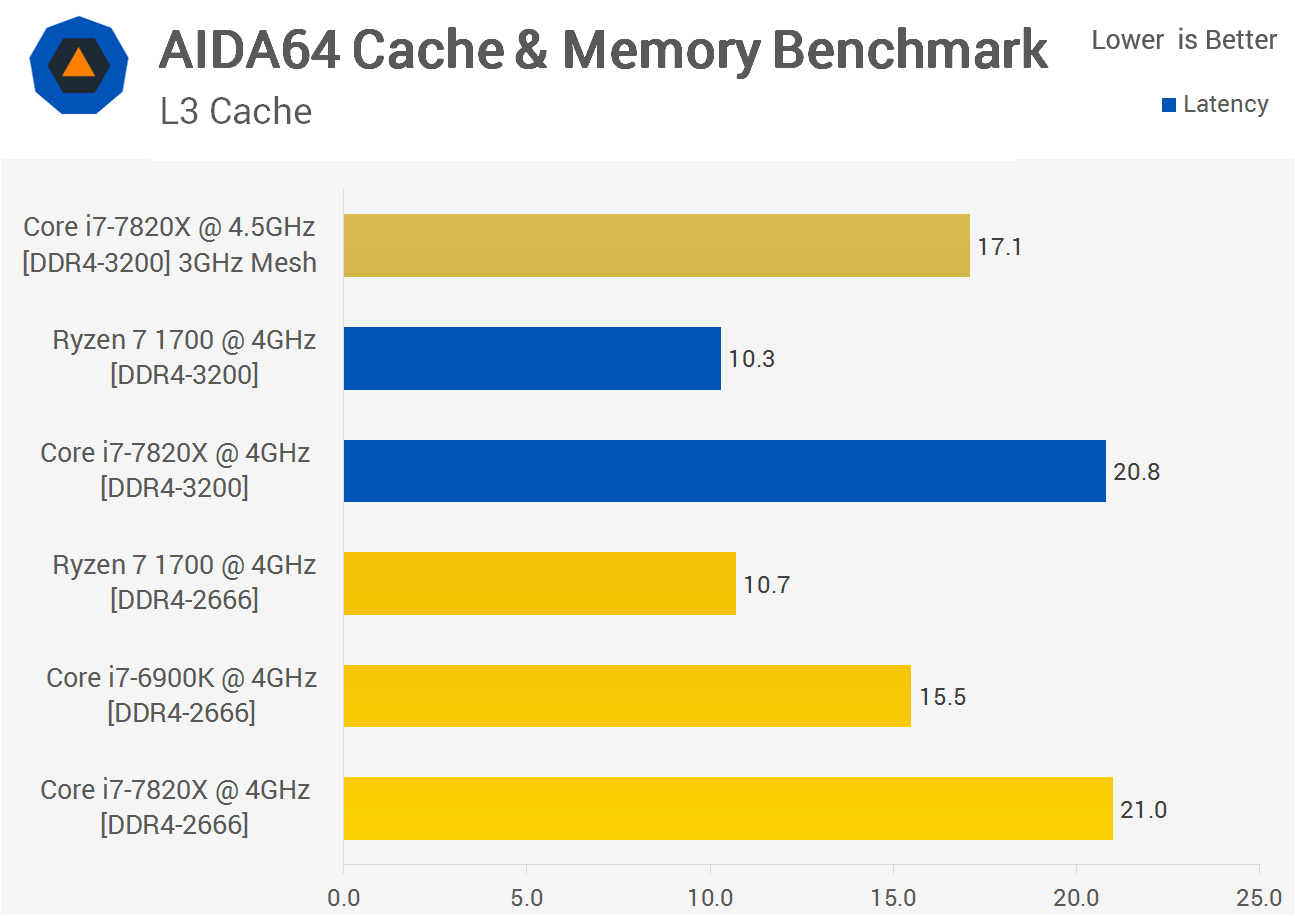Benchmarks: Memory Performance

Before we get to the power consumption figures, here we see that Ryzen's dual-channel memory controller has limited bandwidth compared to Broadwell-E and Skylake-X. Whereas the 7820X can push 66GB/s for the read throughput, the R7 1700 was limited to 40GB/s. That gap only gets wider with overclocking, after which the 7820X hummed along to the tune of 81GB/s.

Memory Latency
What's interesting to note is that the Core i7-6900K is significantly better than both the R7 1700 and 7820X when it comes to memory latency. Ryzen does improve with higher clocked memory, as does the 7820X, but that's to be expected.

Ryzen is well down on the graph when looking at L1 cache throughput – it's basically half that of Intel's CPUs.

That said, while down on bandwidth, latency is much the same.

Ryzen's L2 cache performance is excellent, smashing the 6900K clock-for-clock and even beating the 7820X. At 4.5GHz the 7820X does pull ahead but even so Ryzen is strong here.

Although its overall throughput is weaker, the 6900K's L2 cache offers considerably lower latency than the 7820X until the latter is overclocked. Ryzen couldn't quite catch the 6900K here but still offered strong results.

When compared to the 6900K, the R7 1700's L3 cache throughput looks excellent, but not so much when seated next to the 7820X.

Throughput isn't everything of course and here we see that despite its big bandwidth, the 7820X's latency is lousy even when overclocked. In terms of responsiveness, Ryzen has a big advantage here.
